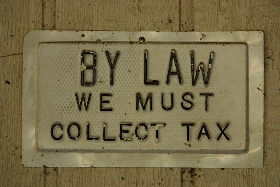 The holiday season is around the corner and while recovery from the global financial crisis is, well, not exactly in full swing… I thought it was time to address the vital question of what it takes to start a new business. Much like the larger-than-life gift-wielding icon from the North Pole, many people question whether or not starting a new business on the back end of recession is a good idea … or the figment of over-active entrepreneurial spirit?
The holiday season is around the corner and while recovery from the global financial crisis is, well, not exactly in full swing… I thought it was time to address the vital question of what it takes to start a new business. Much like the larger-than-life gift-wielding icon from the North Pole, many people question whether or not starting a new business on the back end of recession is a good idea … or the figment of over-active entrepreneurial spirit?
Well in some ways it’s a better time and easier than it ever has been. The competition has been winnowed out, and many businesses are quieter and less obtrusive in their marketing. New technology options including the Internet, e-marketing and outsourced suppliers offering SaaS (software as a service or "cloud computing") make it possible for you to do a lot without emptying your bank.
 In June 2009 President Obama signed the Consumer Assistance to Recycle and Save Act of 2009 (how much caffeine had they had when they came up with that name?), commonly referred to as "Cash for Clunkers." Auto dealers that signed up for this voluntary program received vouchers for qualifying trade-ins on the purchase off new cars where the fuel efficiency of the new car is better than the fuel efficiency of the clunker. The vouchers were for $3,500 or $4,500 depending on the how much you stepped up in fuel efficiency and they were treated as part of your down payment on your purchase. This applied for the period of Jul 1, 2009 until November 1, 2009.
In June 2009 President Obama signed the Consumer Assistance to Recycle and Save Act of 2009 (how much caffeine had they had when they came up with that name?), commonly referred to as "Cash for Clunkers." Auto dealers that signed up for this voluntary program received vouchers for qualifying trade-ins on the purchase off new cars where the fuel efficiency of the new car is better than the fuel efficiency of the clunker. The vouchers were for $3,500 or $4,500 depending on the how much you stepped up in fuel efficiency and they were treated as part of your down payment on your purchase. This applied for the period of Jul 1, 2009 until November 1, 2009. In June 2009 President Obama signed the Consumer Assistance to Recycle and Save Act of 2009 (how much caffeine had they had when they came up with that name?), commonly referred to as "Cash for Clunkers." Auto dealers that signed up for this voluntary program received vouchers for qualifying trade-ins on the purchase off new cars where the fuel efficiency of the new car is better than the fuel efficiency of the clunker. The vouchers were for $3,500 or $4,500 depending on the how much you stepped up in fuel efficiency and they were treated as part of your down payment on your purchase. This applied for the period of Jul 1, 2009 until November 1, 2009.
In June 2009 President Obama signed the Consumer Assistance to Recycle and Save Act of 2009 (how much caffeine had they had when they came up with that name?), commonly referred to as "Cash for Clunkers." Auto dealers that signed up for this voluntary program received vouchers for qualifying trade-ins on the purchase off new cars where the fuel efficiency of the new car is better than the fuel efficiency of the clunker. The vouchers were for $3,500 or $4,500 depending on the how much you stepped up in fuel efficiency and they were treated as part of your down payment on your purchase. This applied for the period of Jul 1, 2009 until November 1, 2009.




